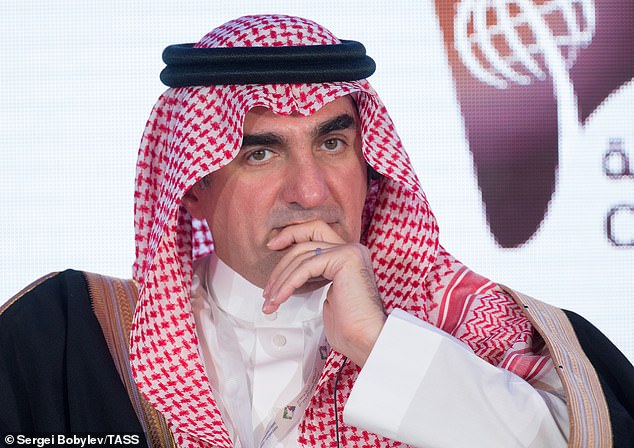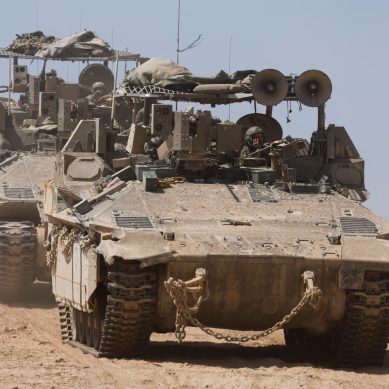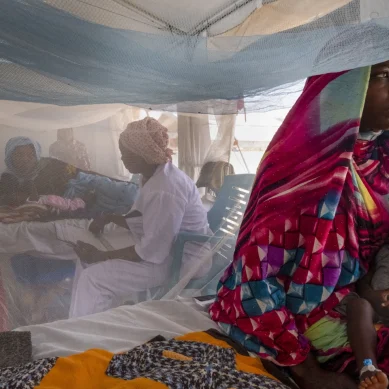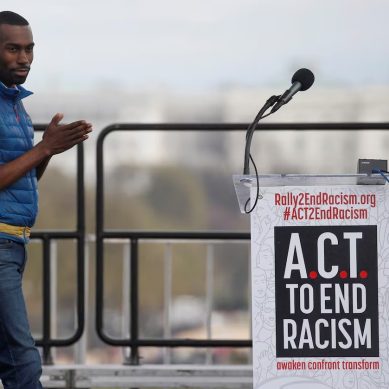
In October 2021, Saudi Arabia’s Public Investment Fund (PIF) completed its majority takeover of Newcastle United, bringing Mike Ashley’s arduous reign to an end. They soon signalled a long-term target of winning the Premier League.
Three weeks later, LIV Golf was launched, a league intended to rival the PGA Tour. They immediately signed several of the world’s highest-ranked players, promised stacks of prize money and, in the process, threw the sport into civil war before Tuesday’s dramatic merger. “Golf has been stuck in a box for 53 years,” crowed CEO Greg Norman.
At the World Cup in Qatar last November, Saudi Arabia humbled eventual winners Argentina 2-1 in the group stage, then in January, Cristiano Ronaldo joined Al Nassr in the Saudi Pro League.
On Monday came Saudi Arabia’s latest sporting venture, officially announced by crown prince Mohammed bin Salman, the country’s de-facto ruler.
An effective relaunch of the nation’s premier domestic football competition, involving the sale of the country’s four largest clubs to PIF, Saudi Arabia’s sovereign wealth fund; huge investment in the wider league and the pursuit of Europe’s most famous footballing talents.
Karim Benzema, the reigning Ballon d’Or winner, is soon to join Ronaldo in the Middle East. The striker met representatives from Al Ittihad at the Four Seasons Hotel in Madrid on Monday to finalise the deal.
The Saudi Pro League is also confident of securing Lionel Messi’s involvement – and there are more to come. Monday’s announcement was a statement of intent backed by the highest figures in the Saudi state, with the aim of transforming the Saudi Pro League into one of the 10 best leagues in the world and tripling its market value.
Yet vast resources are no guarantee of success on football’s global stage – however mouth-watering the wages on offer might be. In 2016, the Chinese Super League began paying massive transfer fees to buy players from Europe and offering them handsome wages. Seven years later, that project has been all but extinguished.
Saudi Arabia’s announcement will also bring controversy. The nation has a terrible human rights record, homosexuality is illegal and there are severe restrictions on freedom of speech and women’s rights. This relaunch will bring accusations of ‘sportswashing’ – that by repackaging its flagship competition for global consumption, Saudi Arabia is attempting to repackage its reputation in front of a global audience.
Saudi organisers instead say the plans form part of the nation’s Vision 2030 plan, aiming to diversify the country’s economic interests, engage a rapidly growing and young population, and embark on an unprecedented modernisation programme.
Amid competing narratives and multi-million dollar deals, The Athletic has unpicked the key details of the announcement. This is both what the news means for Saudi Arabia and what it means for world football.
For such a seismic change in football governance, the announcement itself is relatively simple to understand.
PIF will take control of the four largest teams in the Saudi Pro League – Al Nassr, Al Hilal, Al Ittihad and Al Ahli. These deals will be completed in time for the start of the 2023-24 season in August.
The fund will hold a 75 per cent stake in these four teams, with the other 25 per cent controlled by a non-profit organisation. The board of those clubs, according to the ministry of sport, will be made up of seven members, five of which will be appointed by PIF and the other two by the non-profit.
This is an unprecedented step in football outside of North America – for four top teams to be owned by the same organisation.
In addition, four other Pro League clubs will see their ownership structure changed with investment from other companies. Aramco, the state’s oil institution and the globe’s most valuable company, will take a stake in Al Qadsia; the Diriyah Gate Development Authority in Al Diriyah Club; Royal Commission for Al-Ula Governorate in Al Ula Club; and Neom in Al Suqoor FC.
All four of these companies are ultimately state-owned, with Neom perhaps best known as the company in charge of delivering the planned ‘smart city’ under construction in the country’s north west.
Speaking at the announcement ceremony, Saudi Arabia’s minister of sport Prince Abdullah bin Turki Al-Faisal said the aim of the project was to make the Saudi Pro League one of the top 10 leagues in the world, tripling its market value to SAR 8 billion ($2.1 billion) through a combination of commercial revenue and private-sector investment.
According to sports intelligence agency Twenty First Group in January, the Saudi Pro League is rated as the 58th highest-quality league in the world, by the strength of its average team, which places it below the Scottish Premiership (49th) but above Serie C (68th) in Italy.
To improve the product and attract outside investment, though, Saudi Arabia wants to bring in the world’s top players. Remember, PIF has already walked this path with LIV Golf.
The quickest way to footballing legitimacy is the presence of the sport’s greatest stars. Realistically, organisers know they cannot compete with European sides for players at the peak of their careers who want to play in the UEFA Champions League, but they can outbid them for big-name players approaching retirement. The benefit of that approach is that these players have already cultivated recognition, fandom and media attention.
Plans for the 2023-24 season will see each of the four PIF-owned teams target a minimum of three world-renowned names per club. A smaller number of world-renowned players are expected to be distributed among the other sides in the league.
Under current rules, Saudi teams are allowed eight foreign players in their squad. By sharing ownership, league organisers can ensure an even distribution of talent between the top teams, fostering rivalry, tightening the league table and ultimately increasing commercial revenue.
The timing of this announcement – with 38-year-old Ronaldo already part of the project, Benzema soon to join, and Messi, 35, to potentially follow – is to piggyback on their profiles. The league is also expected to pursue high-profile managers and executives to coach and run the sides.
“If they are coming, big players and big names, young players, old players, they are very welcome,” said Ronaldo in a video interview with the league’s official social media channel. “If that happens, the league will improve.”
Messi, of course, already has a multi-million-pound deal with Saudi Arabia to promote tourism in the country and has been offered a separate contract by Al Hilal – worth in the region of $429 million per year.
“(He) is a wonderful player and a football legend,” Saudi Arabia Football Association president Yasser Al -Misehal told Spanish newspaper El Mundo. “Any league would welcome his arrival and, as a football fan, I would of course be delighted that he would one day play in Saudi Arabia.”
Despite Messi’s initial wish to carry on in European football for one more year, the scale of the Al-Hilal bid could lure him to Saudi. As of now, that seems the most likely destination. In signing Messi, the league hope to rekindle his rivalry with Ronaldo, recreating the dualism that shaped Real Madrid vs Barcelona encounters for nearly a decade.
Benzema, effectively Ronaldo’s successor as Real’s star man, is set to follow his former forward partner to Saudi. He is poised to join recently crowned champions Al Ittihad, having had his departure confirmed by Real on Sunday.
Benzema, 35, and his representatives had a meeting at a Madrid hotel with Al Ittihad club president Anmar Al-Haili and vice president Ahmed Kaaki on Monday afternoon. The talks lasted just over an hour.
– The Athletic report











